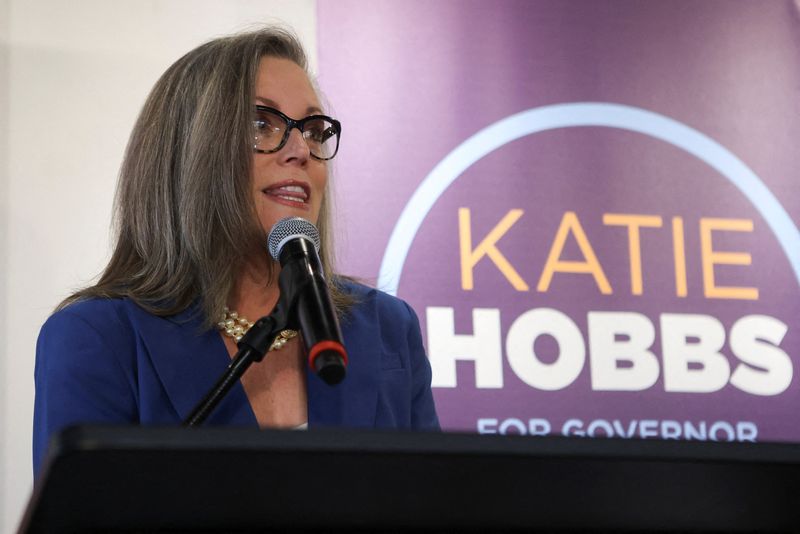By Julia Harte
(Reuters) - The Arizona Supreme Court on Wednesday ruled that it could not compel the state's governor to carry out authorized executions, enabling new Democratic Governor Katie Hobbs to pause them while her administration probes the state's death penalty protocols.
In its decision, the court said the warrants it issued could only authorize the state corrections department to carry out executions, not force a state official to do so.
The ruling came after Hobbs vowed earlier this month to stop executions until "the people of Arizona can have confidence that the state is not violating the law in carrying out the gravest of penalties."
As a result, the execution of an Arizona man convicted of murder in a 2002 killing will not take place as planned on April 6. The state supreme court had issued a warrant for it despite a request by the state's new attorney general, also a Democrat, to undo her Republican predecessor's call for his execution.
One of Hobbs' first actions upon taking office in January was assigning an independent commissioner to review the lethal injection drug and gas-chamber chemical-procurement process, execution protocols, and staff aptitude at the Arizona Department of Corrections, Rehabilitation & Reentry (ADCRR).
"Arizona has a history of mismanaged executions that have resulted in serious concerns about ADCRR’s execution protocols and lack of transparency," Hobbs said in a statement in February, when she appointed a retired federal magistrate judge to be the commissioner.

Arizona temporarily stopped carrying out death sentences after the 2014 execution of Joseph Wood, who snorted and gasped before he died, according to witnesses. A two-drug cocktail injection took nearly two hours to take effect, they said.
Executions resumed last May, when the state put to death a man convicted of killing a student in 1978.